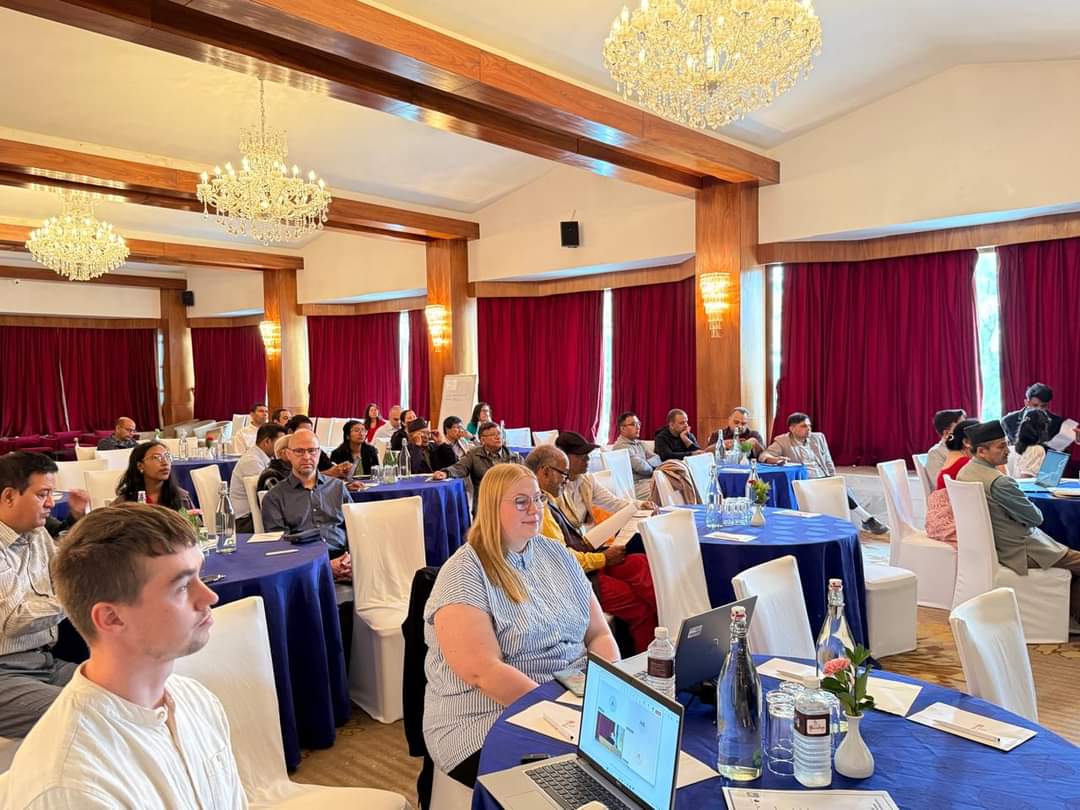Kathmandu October 17, 2024
The Renewable and Sustainable Energy Laboratory (RSEL) of Kathmandu University (KU) hosted a significant workshop at Hotel Himalaya, Lalitpur, addressing “Technological and Socio-economic Solutions to Reduce Indoor Air Pollution in Nepal.” The event, organized in collaboration with the University of Eastern Finland (UEF) and Tribhuvan University (CDES-TU), is part of the SmokeFreeHomes-Nepal project, funded by Finland's Ministry for Foreign Affairs.

The workshop saw participation from 44 experts, researchers, and stakeholders, who discussed innovative approaches to mitigating indoor air pollution and promoting cleaner energy solutions, particularly for rural households in Nepal.
In his opening remarks, Prof. Sunil Prasad Lohani, lead of RSEL and a Principal Investigator of the project, stressed the urgent need for clean air in Nepal. His presentation on "Challenges and Opportunities in Nepal's Clean Cooking Transition" outlined the country’s current situation and emphasized the necessity of adopting sustainable cooking solutions.
Prof. Regina Maskey Byanju gave an insightful presentation on Nepal’s air quality, highlighting the pressing need to address indoor pollution. The UEF team followed with an overview of the SmokeFreeHomes-Nepal project, showcasing advanced methods for emission measurement. They demonstrated the use of the SIMO (Residential Wood Combustion Simulator) to capture real-time data from residential biomass combustion. Preliminary results from the first emission measurement campaign using Improved Cooking Stoves (ICS) were also shared, highlighting emissions levels, fuel consumption, and the associated health impacts in rural areas.
Representatives from RSEL discussed Nepal’s Green Energy Transition, focusing on the country’s renewable energy potential in wind, solar, and biomass. TU's team presented on "Emission Inventory and Decarbonization in the Cooking Sector," outlining strategies for reducing the sector's carbon footprint and the importance of policy interventions and technological advancements.
The event concluded with Prof. Maskey's closing remarks, thanking all participants and collaborators for contributing to a productive discussion on creating cleaner and healthier environments for Nepal’s communities.
This workshop marks an important step forward in Nepal's efforts to improve indoor air quality, reduce pollution, and transition to sustainable energy solutions.